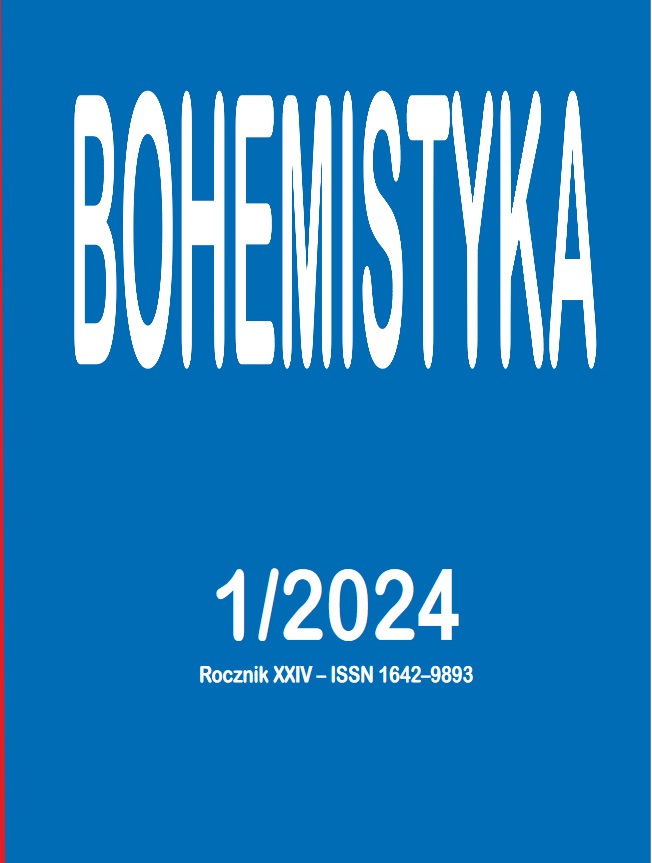Abstract
This article is devoted to the Czech expressive names of person that were created in the process of contamination. The source of the extracted material (64 units) is the online dictionary Čeština 2.0, which gives the users of the Internet the possibility to register linguistic units that were absent to the date from dictionaries and even those of their own authorship. The author briefly describes the structure of Czech contaminatives, but focuses her attention primarily on their semantic characteristics and pragmatic potential. The subject of the analysis is the units naming people in terms of their professional activities, views and behaviour related to the political sphere, human behaviour during the Covid-19 epidemic and human appearance and behaviour unrelated to the Covid-19 epidemic. The characteristics of nominations in question relates to the language game, the humour associated with it and the notion of play in Johan Huizinga’s terms.
References
Česština 2.0. Online: https://cestina20.cz [dostęp: 27.08.2023].
Bergson H., 1902, Śmiech. Studyum o komizmie, Lwów–Warszawa.
Dembska K., 2011, Słowa wykolejone, czyli o zjawisku kontaminacji we współczesnym języku rosyjskim, Łask.
Dembska K., 2023, O zjawisku kontaminacji we współczesnym języku czeskim: charakterystyka strukturalna, „Bohemistyka”, nr 2, s. 159–172. DOI: https://doi.org/10.14746/bo.2023.2.1
Gurin S., 2018, Koncepcija karnavala Michaiła Bahtina i teoriâ arhaičeskogo prazdnika Vładymira Toporova, „Topos. Literaturno-filosofskij žurnal”. Online: https://www.topos.ru/article/ontologicheskie-progulki/koncepciyakarnavala-m-bahtina-i-teoriya-arhaicheskogo-prazdnika [dostęp: 27.08.2023].
Huizinga J., 2007, Homo ludens. Zabawa jako źródło kultury, Warszawa.
Rejter A., 2009, Zewnętrznojęzykowe uwarunkowania przeobrażeń kategorii semantyczno-kulturowych ekspresywnych apelatywnych nazw osób w polszczyźnie, [w:] M. Cichońska (red.), Kategorie w języku: język w kategoriach. Katowice, s. 236–245.
Siudzińska N., 2016, Formacje ekspresywne we współczesnym języku polskim (na przykładzie wybranych pospolitych nazw osobowych), Warszawa.
Skubalanka T., 1972, O ekspresywności języka, „Annales Universitatis Mariae Curie-Skłodowska. Sectio F, Nauki Filozoficzne i Humanistyczne” 27, s. 123–135.
Słownik Języka Polskiego PWN. Online: https://sjp.pwn.pl [dostęp: 27.08.2023].
License
Copyright (c) 2024 Katarzyna Dembska

This work is licensed under a Creative Commons Attribution-NonCommercial-NoDerivatives 4.0 International License.





